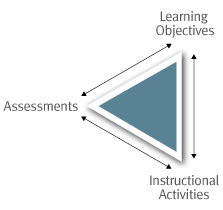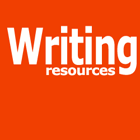Engaging in Writing
 We write to do our work, to communicate, for scholarship, for grants. We use writing to help students learn in classrooms, and teach writing specific genres to students who aspire to be a member of our disciplines. Why not join in rich and rewarding conversations with colleagues who use writing in these myriad ways? Would you like new ideas for infusing your curriculum with meaningful writing projects that move students' understanding forward? Would you like dedicated writing time to work on that chapter, article, grant proposal, or creative project? Check out the offerings below to build your repertoire as a writer, scholar, and teacher of writing in your field. Consultations with Dr. Dianna Winslow, Assistant Director & Writing Instruction Specialist, are always available to you, your teaching cohort, or your entire department.
We write to do our work, to communicate, for scholarship, for grants. We use writing to help students learn in classrooms, and teach writing specific genres to students who aspire to be a member of our disciplines. Why not join in rich and rewarding conversations with colleagues who use writing in these myriad ways? Would you like new ideas for infusing your curriculum with meaningful writing projects that move students' understanding forward? Would you like dedicated writing time to work on that chapter, article, grant proposal, or creative project? Check out the offerings below to build your repertoire as a writer, scholar, and teacher of writing in your field. Consultations with Dr. Dianna Winslow, Assistant Director & Writing Instruction Specialist, are always available to you, your teaching cohort, or your entire department.
Assignment and Assessment Design to Promote Academic Integrity
Winter and Spring offerings TBD
 This workshop builds faculty knowledge about course design factors that in turn build student self-efficacy and increase the promotion of academic integrity. Assignment and Assessment Design to Promote Academic Integrity reviews evidence-based teaching strategies for designing or revising course assignments to enhance students' learning, critical thinking, and reflection practices. The workshop includes support for creating activities and assignments that meet desired course learning outcomes, increase intrinsic motivation, and promote students' honest engagement with learning processes. In this workshop, participants will:
This workshop builds faculty knowledge about course design factors that in turn build student self-efficacy and increase the promotion of academic integrity. Assignment and Assessment Design to Promote Academic Integrity reviews evidence-based teaching strategies for designing or revising course assignments to enhance students' learning, critical thinking, and reflection practices. The workshop includes support for creating activities and assignments that meet desired course learning outcomes, increase intrinsic motivation, and promote students' honest engagement with learning processes. In this workshop, participants will:
- Review and reflect on current course assignments and assessments
- Map course assignment scaffolding and arc
- Design "low stakes" formative activities and assignments to mediate single "high stakes" summative assessments
- Create materials to build class community and deepen critical engagement
- Participate in peer-review of assignment designs with other participants
- Design assessment rubrics for instructor reflection and transparent teaching, as well as efficient and consistent grading
Learn more about Assignment and Assessment Design to Promote Academic Integrity
Winter 2026 1/2-Day Faculty Writers' Sprints

March 23-24, Monday & Tuesday, 9-12 pm
Thess 2, half-day Faculty Writers' Sprints are designed to help faculty make progress on their scholarly writing. The group meets daily with facilitator Dr. Dianna Winslow, CTLT Assistant Director and Writing Instruction Specialist.
Each day there will be group check-ins with a light breakfast to start, concentrated writing time, and plenty of snacks and coffee to keep the momentum going.
Register for Winter 2026 Half-day Faculty Writers' Sprints
Summer 2026 Faculty Writers' Retreats
Summer 2026 Dates, TBD
These 3-day faculty writers' Retreats are designed to help faculty make progress on their scholarly writing. The group meets daily with facilitator Dr. Dianna Winslow, CTLT Assistant Director and Writing Instruction Specialist. Each day there will be group check-ins to start and end the day, concentrated writing times, a collegial lunch, and plenty of snacks and coffee to keep the momentum going. Dianna will offer one-on-one consultations as requested, and help form "buddy groups" for post-sprint encouragement if desired. Tara Gray's Publish and Flourish book and other occasional resources shape daily discussions about the writing and research process. The newest edition of Gray's book will be provided to you free of charge by the CTLT once you enroll in the group.
Registration for Summer 2025 Faculty Writers' Retreats
Writing in the Disciplines
Winter and Spring 2026 Offerings TBD

This workshop is offered in partnership with the Office of Writing and Learning Initiatives and is designed to create space for faculty to explore how writing operates within their disciplines and to develop writing learning outcomes for their courses.
Whether or not you currently embed writing into your curriculum, this workshop invites you to consider the following:
- Writing in the discipline as a high impact practice
- Genres associated with your discipline that may help prepare students for professional success
- Nationally recognized practices in writing instruction
- Characteristics of effective writing assignment design, including the benefits of "low stakes" and "high stakes" writing activities
- The use of peer review to build community and deepen critical engagement
- Strategies for incorporating revision and reflection into the writing process
This workshop aligns with campus efforts to expand Graduation Writing Requirement (GWR) courses across the curriculum and includes information on the GWR course proposal process.
Find out more on the Writing in the Disciplines webpage.
Resources for Teaching with Writing
 These writing resources offer guidelines for developing purposeful writing assignments; using writing to explore content and foster learning; providing effective feedback; and managing the paper load. Additionally, the CTLT is happy to consult with instructors and programs on any writing-related issues. To arrange for an individual consultation or to coordinate a workshop for your program, please contact Dr. Dianna Winslow, CTLT Assistant Director and Writing Instruction Specialist.
These writing resources offer guidelines for developing purposeful writing assignments; using writing to explore content and foster learning; providing effective feedback; and managing the paper load. Additionally, the CTLT is happy to consult with instructors and programs on any writing-related issues. To arrange for an individual consultation or to coordinate a workshop for your program, please contact Dr. Dianna Winslow, CTLT Assistant Director and Writing Instruction Specialist.
- Designing Good Writing Assignments
- Sequencing Assignments
- Assignment Checklist
- Low Stakes Writing
- Responding to Student Writing
- Using Peer Review
- Dealing with Student Error
- Managing the Paper Load
- Annotating Exemplars
- Preventing Plagiarism
Teaching with Writing: A Conversation Series

Look for these sessions in the CTLT newsletter throughout the academic year. Join CTLT Writing Instruction Specialist Dianna Winslow for one or more of these informal lunchtime Zoom conversations to pick up some handy ideas for using writing in any class you teach. Lunching while meeting is encouraged.
Topics for past sessions have included:
- “Use Rubrics. Trust me.” (Session handout on using rubrics)
- “Focused Peer Review? Yes, Please!” (Session handout on peer review)
- "Giving Helpful Formative Feedback to Students’ Writing." (Sessions handout on responding to student writing)
These discussions are grounded in written communication scholarship, which confirms writing as an excellent tool for students to learn, reflect on, and apply course concepts, understand how specific disciplinary writing conventions work, develop the ability to transfer their knowledge from one learning context to another, and communicate disciplinary knowledge with non-disciplinary audiences.
Questions?
For questions or comments about CTLT's programs and services related to writing instruction, contact Dr. Dianna Winslow, Assistant Director & Writing Instruction Specialist.



